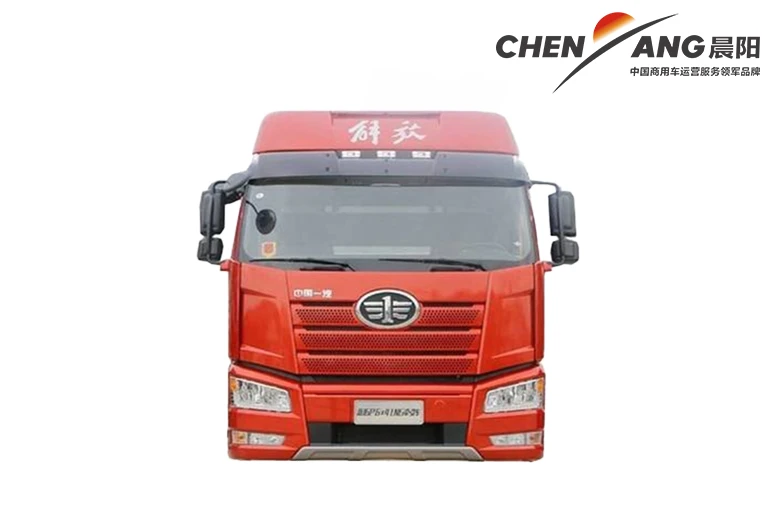container semi trailer
The Container Semi Trailer A Critical Component of Modern Logistics
In today's interconnected world, the movement of goods across vast distances relies heavily on efficient transportation systems. Among these systems, the container semi trailer stands out as a critical component that facilitates the seamless transfer of cargo. These versatile vehicles have become essential for supply chains across the globe, providing a flexible and reliable solution for transporting everything from raw materials to finished products.
What is a Container Semi Trailer?
A container semi trailer is a specialized type of trailer designed to carry standard shipping containers. These trailers are typically attached to a tractor unit or a truck, which provides the necessary power for road transportation. The primary advantage of using container trailers is their compatibility with intermodal transport systems, allowing cargo to be moved efficiently between ships, trains, and trucks without needing to unpack the containers.
The standard shipping container comes in various sizes, with the 20-foot and 40-foot containers being the most common. Container semi trailers are designed to accommodate these sizes, featuring adjustable locking mechanisms that secure the containers during transit. This secure attachment is crucial for ensuring safe transport over long distances, particularly on highways where road conditions can vary.
Versatility and Efficiency
One of the distinguishing features of the container semi trailer is its versatility. These trailers can carry a wide range of goods, including heavy machinery, industrial products, consumer goods, and even perishable items when equipped with refrigerated containers. This adaptability makes container semi trailers indispensable for various industries, from agriculture and manufacturing to retail and e-commerce.
In addition to their load-carrying capabilities, container semi trailers play a pivotal role in streamlining logistics operations. Their design allows for easy loading and unloading, whether at ports, rail terminals, or distribution centers. This efficiency reduces turnaround times and helps keep supply chains moving smoothly, which is especially important in today's fast-paced market.
Environmental Considerations
container semi trailer

As awareness of environmental issues grows, the transportation industry is under increasing pressure to reduce its carbon footprint. Container semi trailers have the potential to contribute to more sustainable logistics practices. For instance, by utilizing the intermodal system, companies can optimize their transportation routes, reducing reliance on road transport and lowering greenhouse gas emissions.
Moreover, advancements in technology are leading to more eco-friendly trailer designs. Many modern container semi trailers are constructed from lighter materials, which enhance fuel efficiency. Additionally, some companies are exploring the use of alternative fuel sources, such as electric and hybrid systems, to power the trucks that haul these trailers. Such innovations could further decrease the environmental impact of freight transportation.
Challenges and Future Trends
Despite their many advantages, container semi trailers also face challenges. Fluctuations in fuel prices, regulatory changes, and infrastructure limitations can affect the efficiency and cost-effectiveness of transporting goods. For example, the rise of e-commerce has created an increased demand for last-mile delivery solutions, which often require different types of vehicles and logistics strategies compared to traditional freight transport.
Looking to the future, the integration of technology will likely play a critical role in enhancing the efficiency and safety of container semi trailers. Innovations such as GPS tracking, automated systems for loading and unloading, and advanced route optimization software are already changing the landscape of logistics. These technologies can improve real-time visibility of shipments and help companies respond more effectively to disruptions in the supply chain.
Conclusion
In conclusion, container semi trailers are a vital link in the global transportation network. Their ability to efficiently transport goods across different modes of transport makes them indispensable to modern logistics. As the industry evolves, focusing on sustainability and technological integration will be essential in meeting the challenges ahead. Ultimately, the container semi trailer is not just a vehicle; it is a key player in shaping the future of transportation and supply chain management.
By embracing innovations and addressing environmental concerns, container semi trailers will continue to be instrumental in driving the economy forward, ensuring that businesses can meet the demands of a rapidly changing world.
-
SINOTRUK HOWO 84 Electric Dump Truck for Eco-Friendly Heavy HaulingNewsJul.26,2025
-
The Fast 16-Gear Manual Transmission Assembly for Heavy TrucksNewsJul.25,2025
-
Mercedes Benz Actros 1848 42 Tractor Truck for Sale - Reliable PerformanceNewsJul.24,2025
-
High-Quality Water Pump Assembly for Sinotruk Trucks – Durable & ReliableNewsJul.23,2025
-
Premium Truck Engine Antifreeze Coolant Fluid for Heavy Duty VehiclesNewsJul.22,2025
-
FOTON View G7 Mini Bus: Affordable & Spacious TransportNewsJul.22,2025
Popular products

























